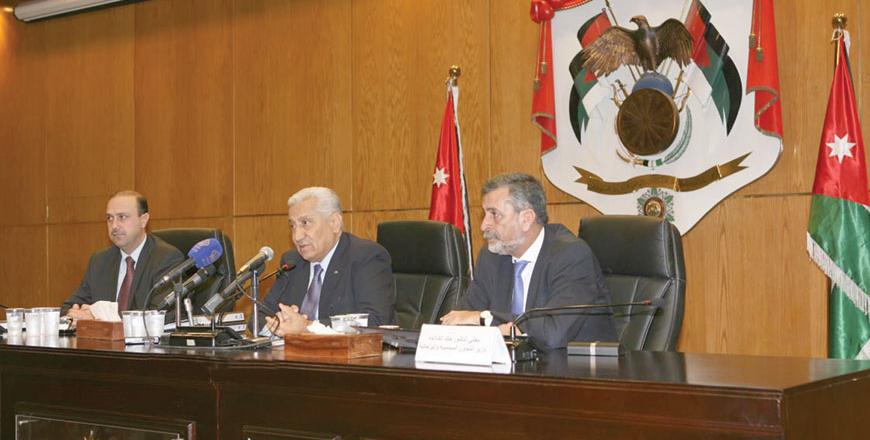You are here
Brotherhood seeks guarantees of election integrity before deciding on participation
By Raed Omari - Mar 14,2016 - Last updated at Mar 14,2016
AMMAN — The government's procedures to ensure fair and free elections will be the main criterion when the Muslim Brotherhood takes the decision to participate or boycott the upcoming parliamentary elections, the group said on Monday.
In a statement yesterday, the Muslim Brotherhood, the Kingdom's largest opposition group, said that it has made no decision yet to participate or boycott the parliamentary elections, adding that its final decision will be based on a number of factors — chiefly the government's “seriousness to ensure fair and transparent polls”.
"Our decision will mainly rely on the measures taken by the next government," which is expected to be formed to handle the elections, whose date is not decided yet.
"Reforming the Independent Elections Commission and the nature of the government which will supervise the polls are the crucial factors in its decision,” the group said.
In the statement, a copy of which was sent to The Jordan Times, the Brotherhood expressed regret over what it described as the government's insistence on a "failed elections law", saying that the government has turned its back to the demands of political parties and civil society organisations when it drafted the 2015 Parliamentary Elections Law.
In remarks to The Jordan Times later on Monday, Murad Adaileh, spokesperson of the Islamic Action Front (IAF), the political arm of the Islamic Movement, echoed the statement.
"The group's and the IAF's shura councils have a decision to make at the end of the day," Adaileh said, "and that decision will be based on how serious the coming government will be in ensuring integrity of the elections".
The Islamist group boycotted the 2010 and 2013 polls, mainly citing the notorious one-person, one-vote system, which was scrapped in the newest version of the law, passed by Parliament and endorsed by the King recently. They also pointed out the lack of transparency and vote rigging in the 2007 polls.
However, Adaileh said: “It is not true that our decision has been based on our rejection of the election law. In 2007, the group participated in the polls although they were conducted on the basis of the one-person, one-vote electoral system which we always opposed,” he said.
“The IAF participated in the 2007 elections, which completely lacked fair play.”
In addition to guarantees of transparency and fairness in the polls, Adaileh said a third factor is a “suitable internal climate”, including the protection of public freedoms and the strong presence of political parties in the political life.
“Let’s see what they [authorities] will do and then we will decide accordingly.”
Related Articles
AMMAN — The Islamic Action Front (IAF) will undergo a restructuring process to diversify the party’s membership, IAF spokesperson Murad Adai
AMMAN — The Islamic Action Front (IAF) is seeking partnerships to enhance its presence in the upcoming parliamentary elections, slated for S
AMMAN — The government on Monday unveiled the new parliamentary elections law, removing from the keystone reform bill the longstanding one-p

















